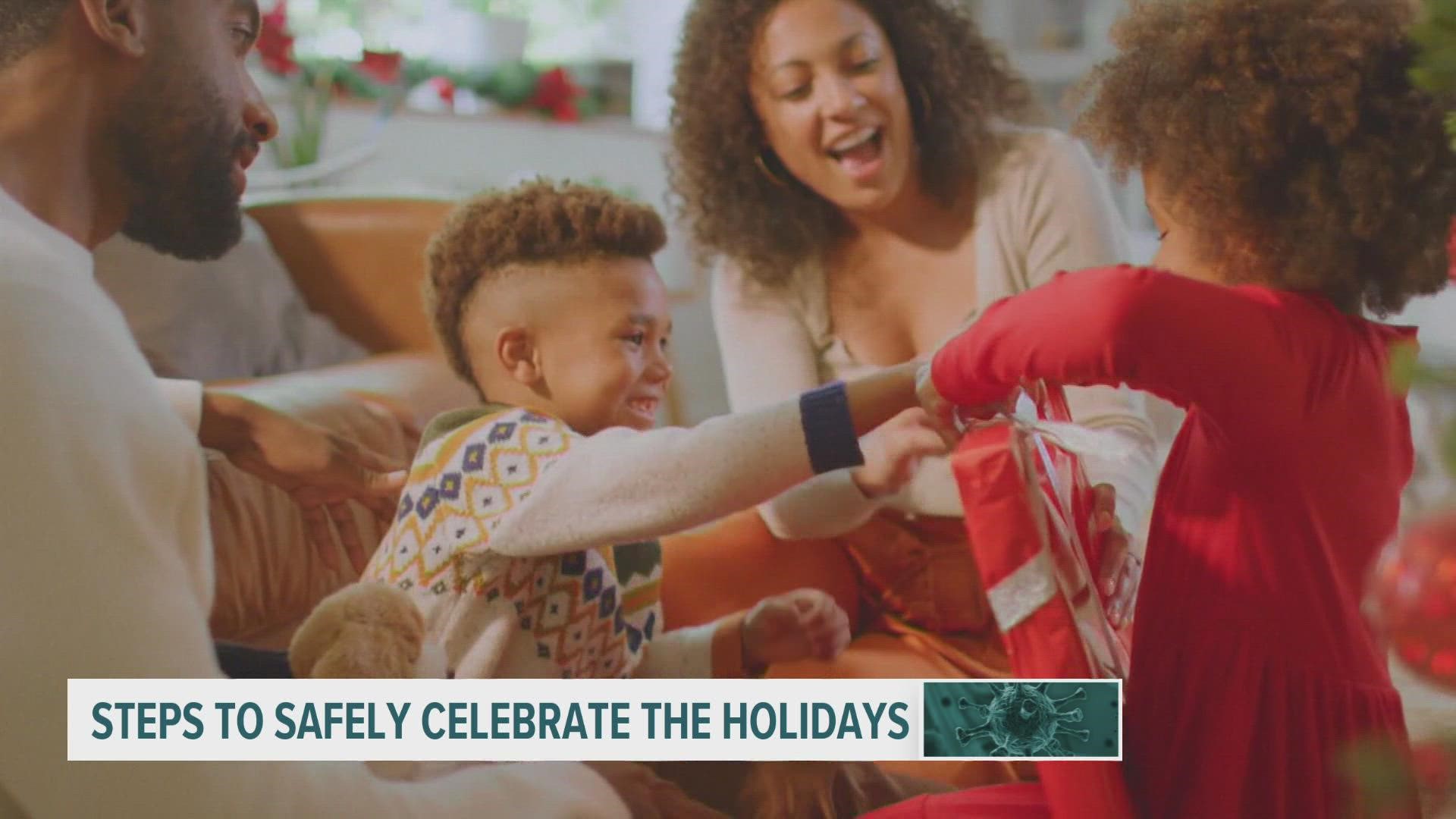DES MOINES, Iowa —
The holidays are here, meaning folks across the state are getting ready to gather with friends and family.
In 2020, many celebrations were put on hold due to COVID-19. Not everyone was yet eligible to get vaccinated, and hospitalizations had reached a dramatic peak just one month before.
This year, health experts are encouraging everyone to get vaccinated to keep themselves safe from the now-dominant omicron variant. Experts also want folks to get tested before visiting with family to limit the spread.
Local 5 reached out to more experts on what Iowans should know before they head out for the holiday weekend.
The omicron variant
As of Thursday, a spokesperson for the Iowa Department of Public Health said 26 cases of the omicron variant have been reported in the state. Cases have been confirmed in the following counties: Black Hawk, Des Moines, Dubuque, Franklin, Jefferson, Johnson, Linn, Polk, Scott and Story.
Dr. Jennifer Olson, the president of MercyOne Central Iowa Medical Group, said because omicron is still in its early phases, there is a lot that's still unknown.
"It does appear that the delta causes more illness, more severity of symptoms," Olson said. "But we are finding that younger adults are getting more symptoms with Omicron than they did with delta. So again, these variants are their own beast."
Olson said the symptoms are similar to other COVID strains, but the new variant is much more transmissible.
Testing and travel
"If you're having fever, body aches, lose, taste, lose smell, any of those symptoms, you should be getting tested," Olson said.
She said Mercy uses a test that can detect COVID, RSV and influenza with one swab, since other viruses are also circulating in the area.
WATCH | Iowa health experts approve Biden's plans to deliver at-home COVID test kits
Safe holiday gatherings
"If you're having any type of symptoms, you should be tested prior to having going to that gathering, because we want to make sure that you're not going to be passing on influenza or COVID, for that matter," Olson said.
She noted it's especially important to get tested if you're seeing family members who are elderly or under the age of two.

